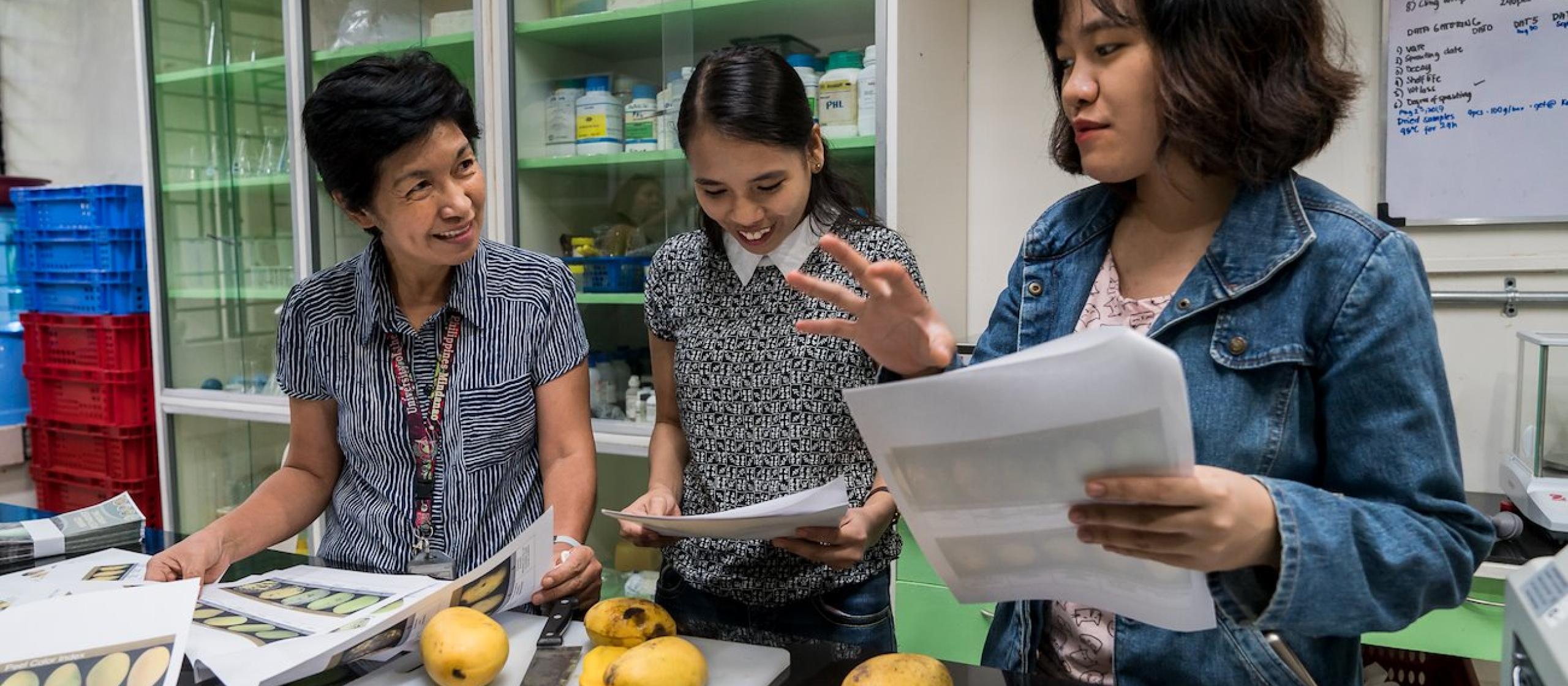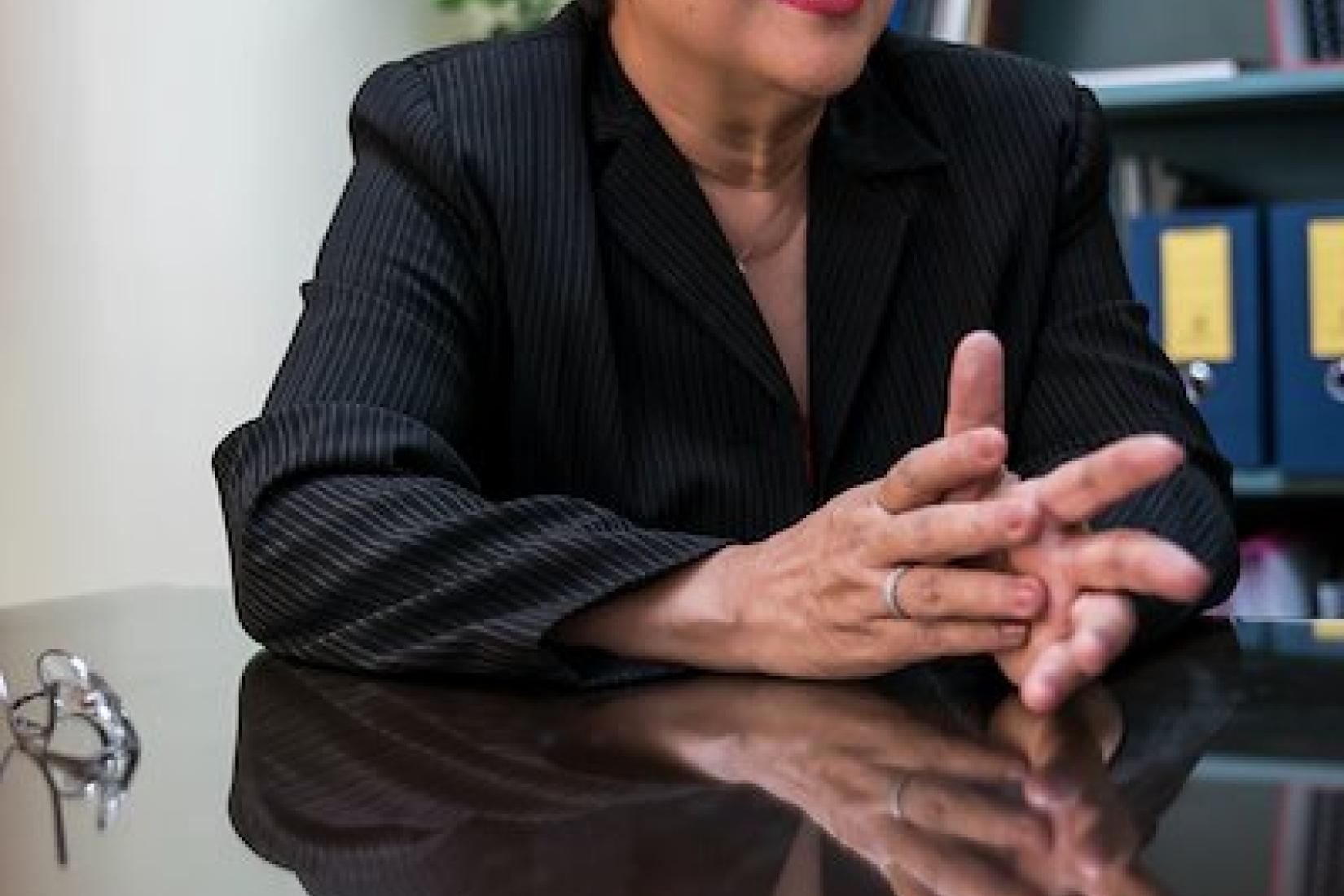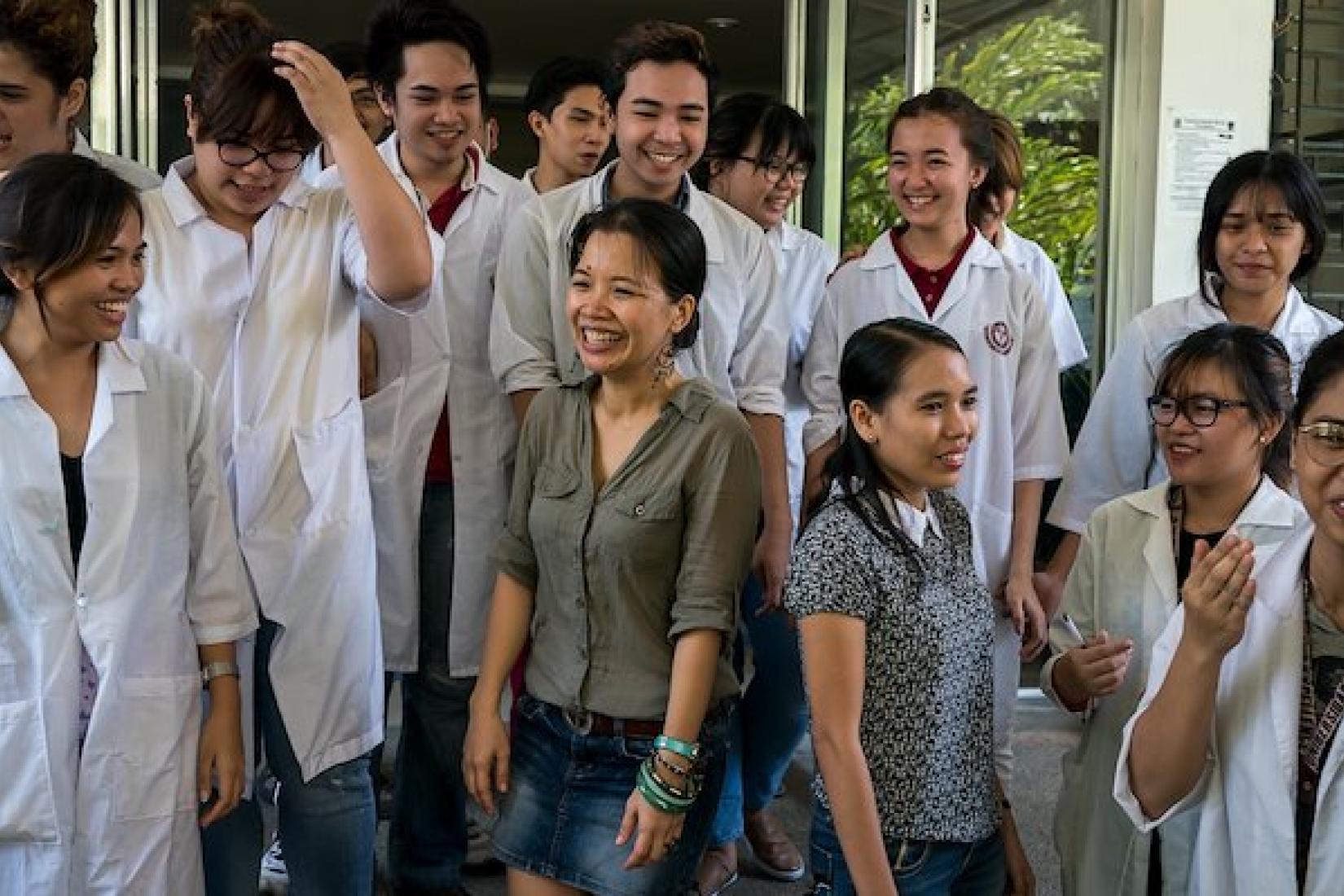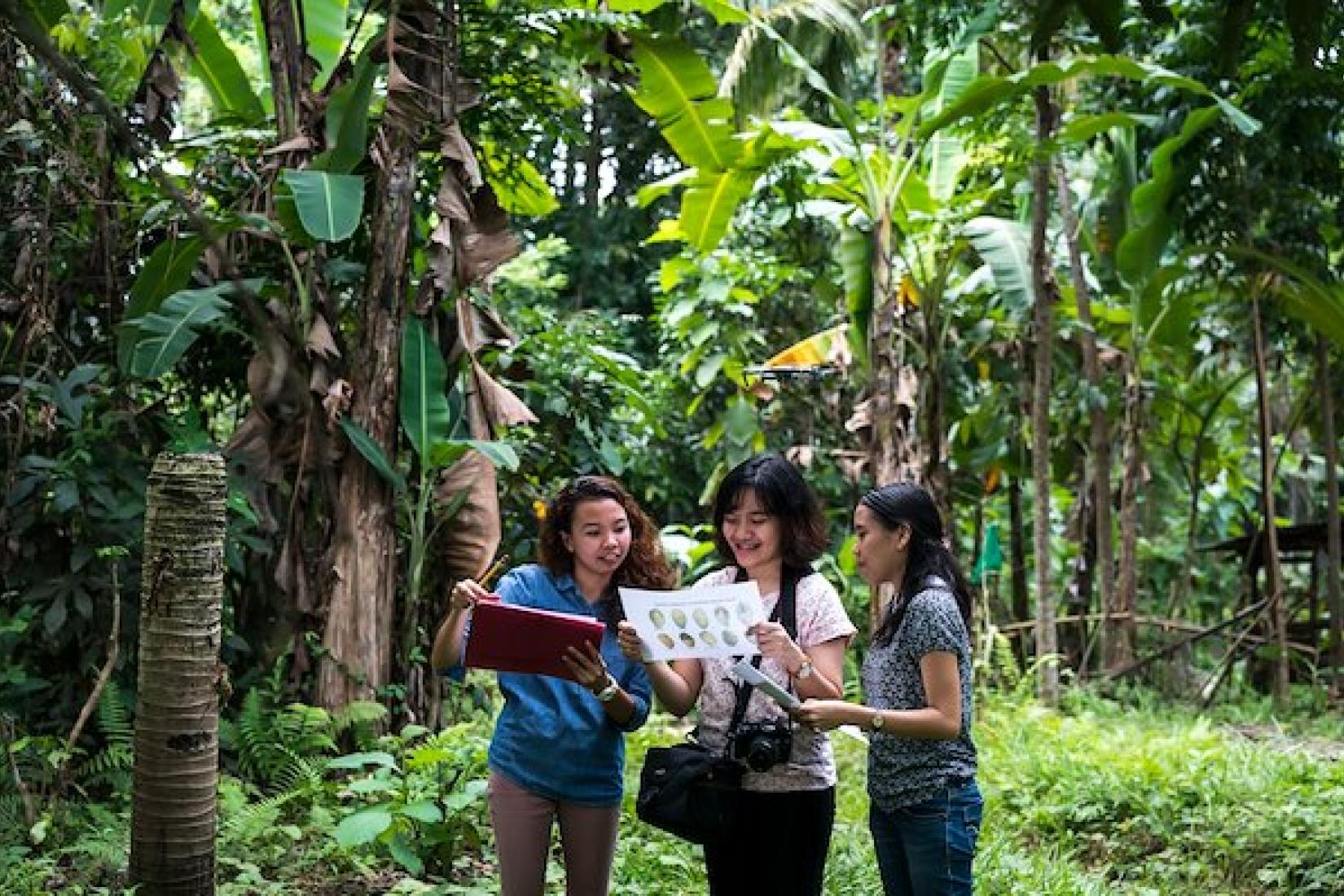‘I really like research that translates into the improvement of people's lives,’ says Shang. ‘This particular project with ACIAR is why I love it so much. Seeing farmers lives really improve and them telling you that story…things like that really inspire me.’
It’s this opportunity to conduct applied research that is fuelling young scientists to dedicate their careers to science.
‘The motivation is the joy that you get, and that’s the same motivation that you should find in every generation of young researchers—what makes them do the work they want to do,’ says Beng. ‘Partnering with ACIAR means [we have] a mandate to do research. The idea is to train enough leaders [and researchers] so they can be your multiplier effect in society.’
Equity in the lab
Professor Emma Ruth Bayogan is another senior researcher at the University of the Philippines encouraging young female scientists into a career of research for development.
Currently the in-country project leader for an ACIAR-funded project, Improved postharvest management of fruit and vegetables in the Southern Philippines and Australia, Emma believes recruiting the next generation of female scientists is crucial to continuing the important work done through the university.
‘There has to be a generation of upcoming young and female researchers, especially in this field,’ says Emma. ‘This pool of young post-harvesters follow in the footsteps of those who went ahead. And maybe in my footstep, because I’ll be retiring in a few years.’
Emma has a team of research assistants working on an ACIAR-funded project; all young women inspired by the positive impact they are making in their community through their applied research.
‘Before graduating, I already knew that I wanted to pursue a career in research,’ says Viena Monterde, a graduate with a Bachelor degree in Food Technology. ‘So when Dr Bayogan mentioned that she has an opening for a research assistant here in this project, I immediately took her offer,’ she says.
‘Research is an underrated profession in the Philippines,’ says Viena. ‘Researchers need to have immense attention to detail, creativity, dedication, and above all, compassion—compassion for our struggling fellow Filipinos who lack the technology and scientific know-how to run their business efficiently,’ she says. ‘It is absolutely the most fulfilling job there is.’
Vienia, who has been working on an ACIAR-funded project for five months, believes diversity and gender equity is essential to conducting effective research.
‘Having diverse people who have different thought-processing leads to better problem solving,’ she says. ‘I think that it is important for young female millennials to pursue a career in research. So as to break all of those gender biases, gender roles because I believe that men and women equally have a place in the research field where you have all the strategic planning [and] critical thinking.’
More powerful together
International Women’s Day is celebrated around the world on 8 March, with the theme for 2019 being ‘more powerful together’, recognising the important role we all play in breaking down stereotypes and gendered roles to create a world where women and girls everywhere have equal rights and opportunities.
ACIAR’s fellow government agency, the Department of Foreign Affairs and Trade, is partnering with the United Nations’ National Committee in Australia to support events around the country.






